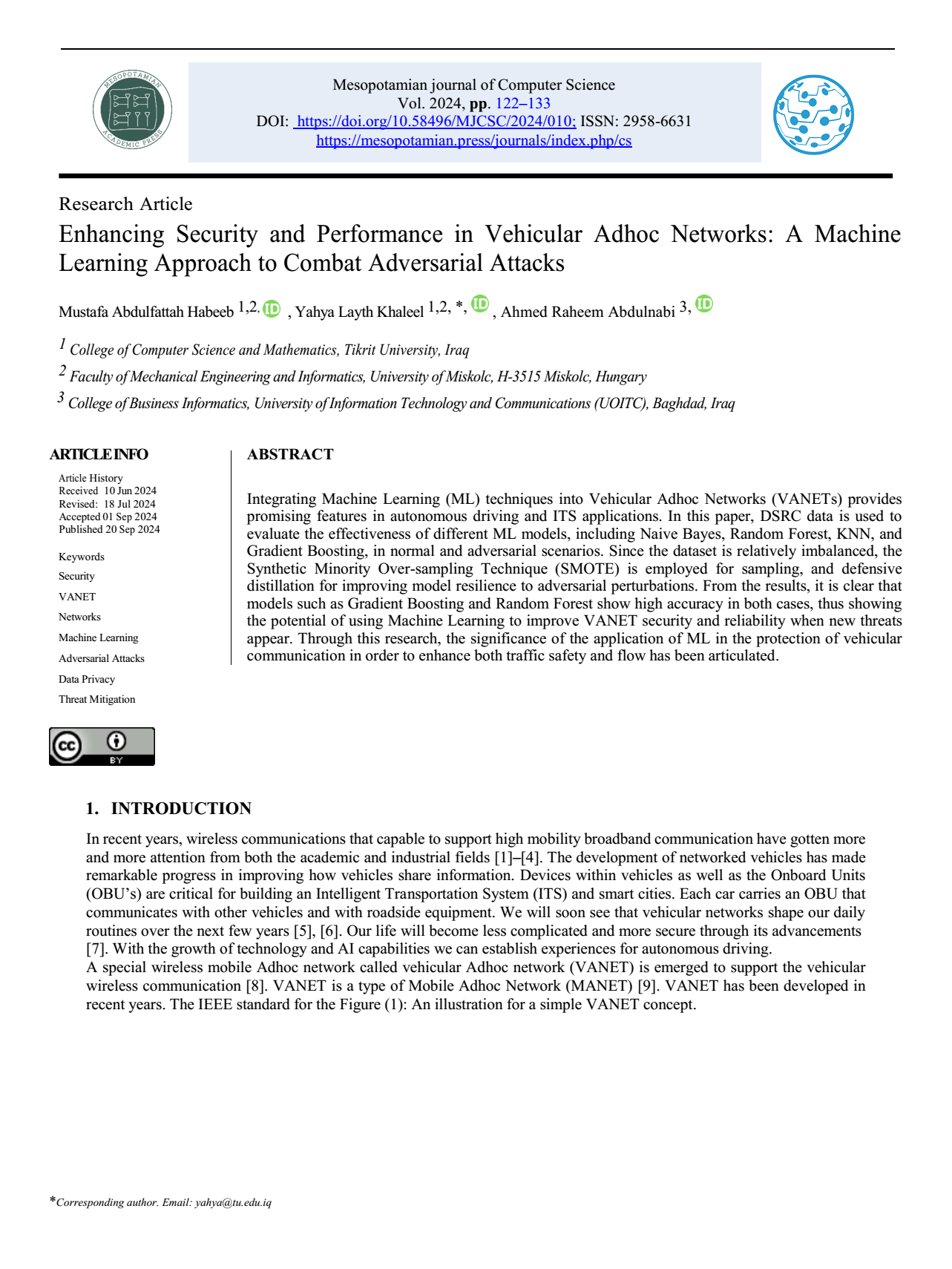Enhancing Security and Performance in Vehicular Adhoc Networks: A Machine Learning Approach to Combat Adversarial Attacks
Main Article Content
Abstract
Integrating Machine Learning (ML) techniques into Vehicular Adhoc Networks (VANETs) provides promising features in autonomous driving and ITS applications. In this paper, DSRC data is used to evaluate the effectiveness of different ML models, including Naive Bayes, Random Forest, KNN, and Gradient Boosting, in normal and adversarial scenarios. Since the dataset is relatively imbalanced, the Synthetic Minority Over-sampling Technique (SMOTE) is employed for sampling, and defensive distillation for improving model resilience to adversarial perturbations. From the results, it is clear that models such as Gradient Boosting and Random Forest show high accuracy in both cases, thus showing the potential of using Machine Learning to improve VANET security and reliability when new threats appear. Through this research, the significance of the application of ML in the protection of vehicular communication in order to enhance both traffic safety and flow has been articulated.
Article Details
Issue
Section

This work is licensed under a Creative Commons Attribution 4.0 International License.
